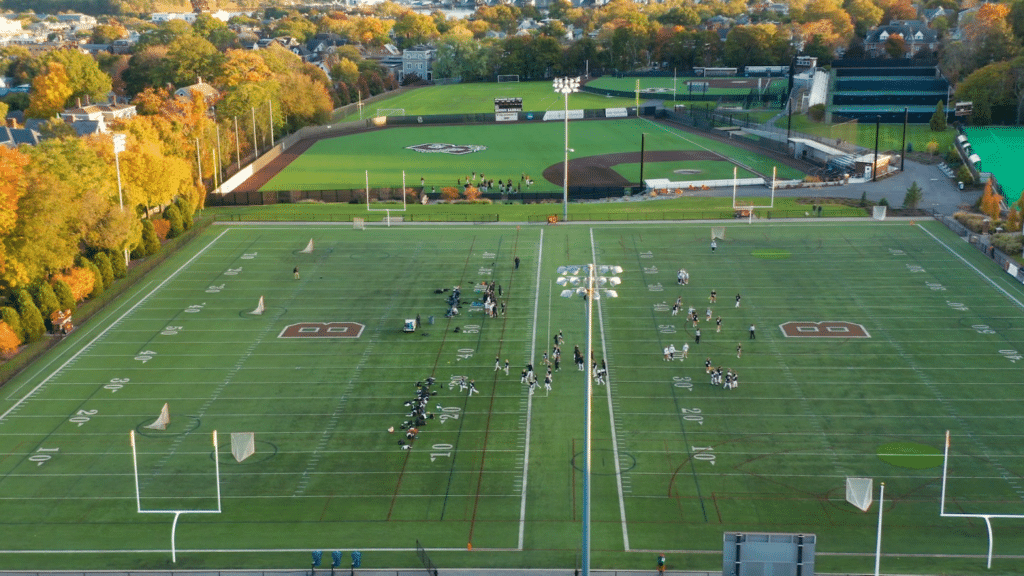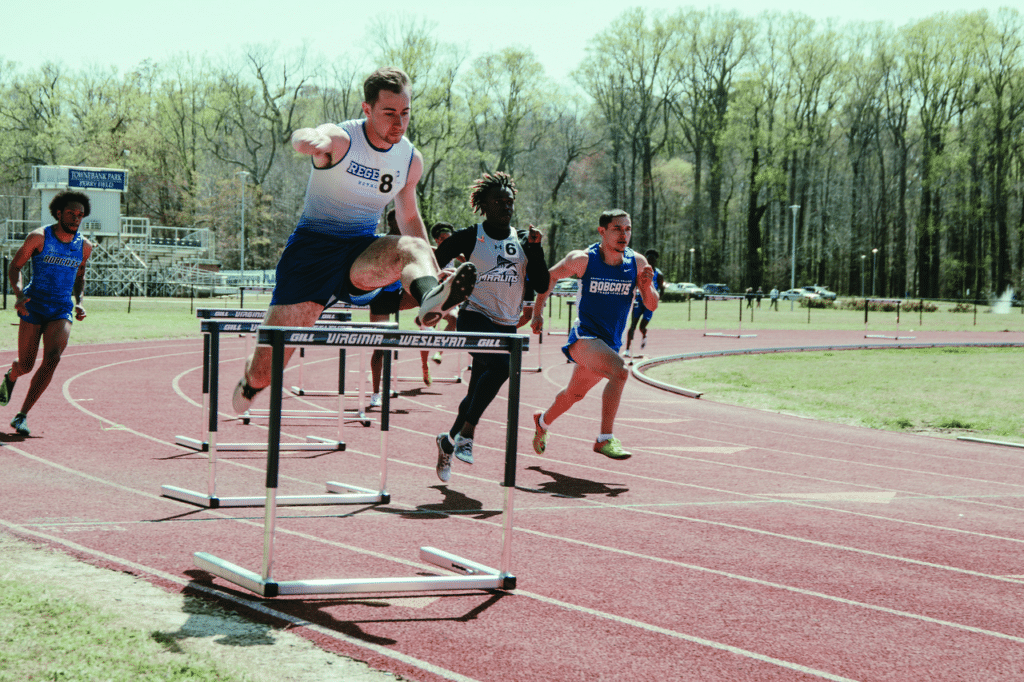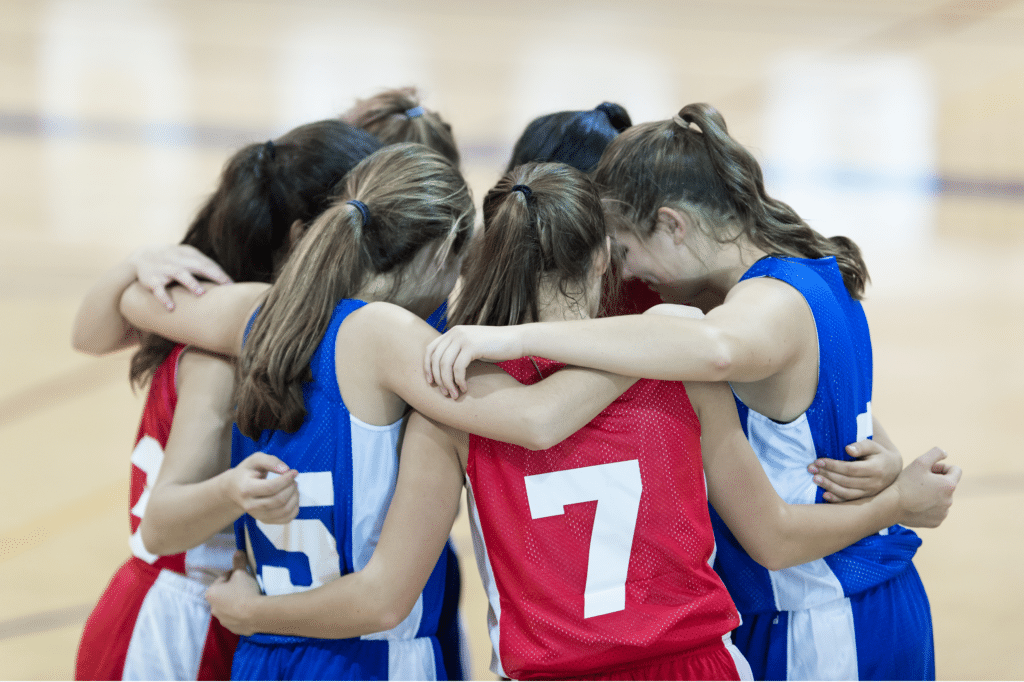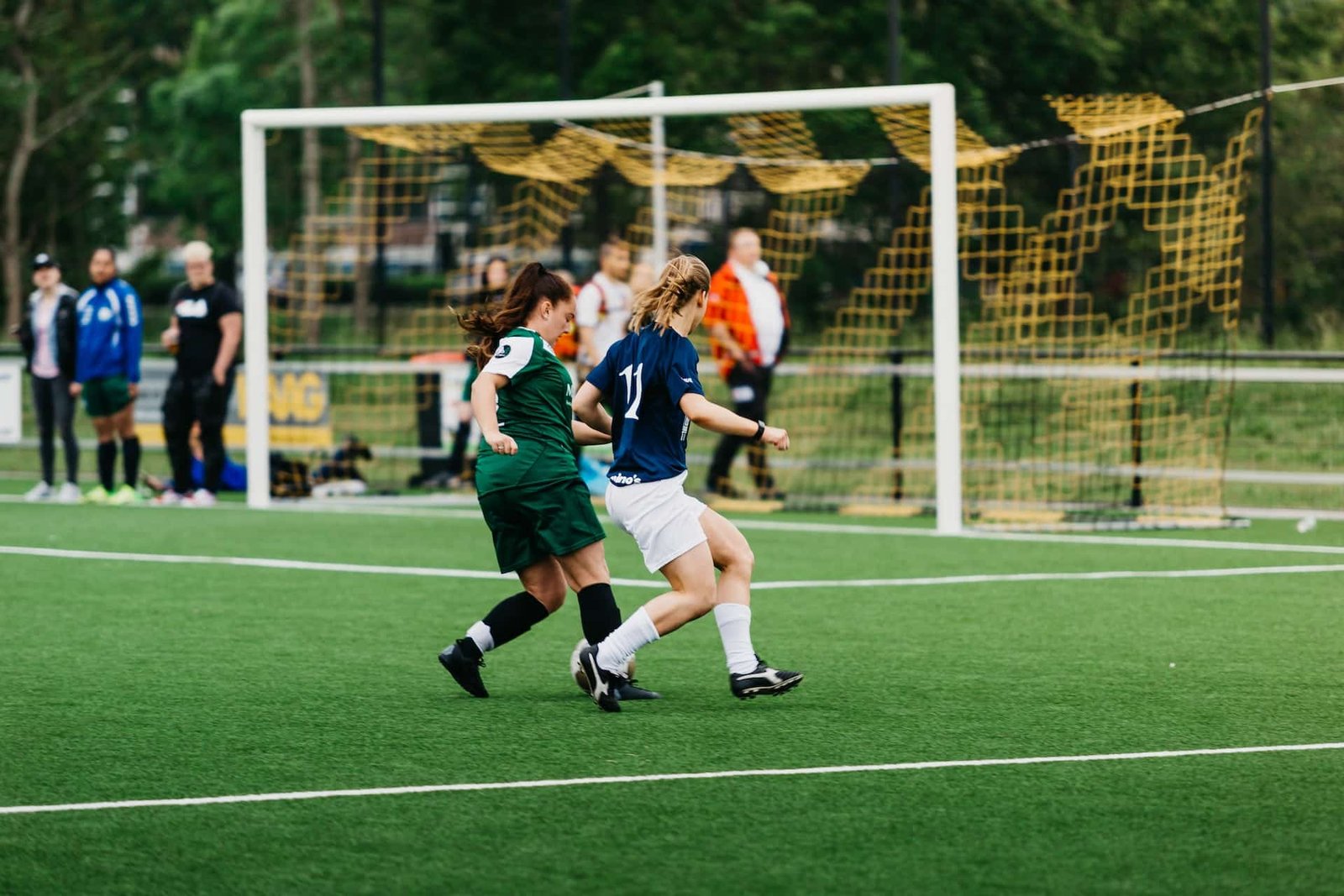University athletics programs play a significant role in shaping the overall student experience, not only by providing entertainment and competition but also by fostering a strong sense of community, school spirit, and personal growth. Whether through supporting school teams, participating in intramural sports, or engaging in fitness programs, athletics offer opportunities for students to enhance their social, mental, and physical well-being. These programs are deeply intertwined with campus culture and are a cornerstone of many universities worldwide. But how exactly do university athletics programs contribute to student life and campus culture?
In this article, we will explore the various ways in which university athletics impact the broader campus environment, how they foster personal development, and why they are an integral part of college life. We will also examine the benefits and challenges of university athletics programs and provide insight into how they shape the identity of a university.
Key Takeaways
- Community Building: University athletics programs foster strong campus communities, bringing together students, faculty, and alumni around school spirit and support for sports teams.
- Personal Growth: Student-athletes develop key life skills such as leadership, resilience, time management, and discipline that are valuable in both academics and career.
- University Identity: Athletics contribute to a university’s identity, boosting its reputation, creating traditions, and uniting students, alumni, and local communities.
- Inclusive Participation: Non-athletes also benefit from athletics programs through access to fitness, leadership opportunities, and social engagement, enriching campus culture.
- Mental and Physical Well-Being: Athletics promote physical health, mental toughness, and emotional well-being, helping students manage the demands of college life.
The Social Impact of University Athletics Programs

One of the most immediate and obvious impacts of university athletics on campus life is the sense of community they create. For many students, sports are an important social activity that brings people together, whether they are athletes, fans, or volunteers.
- Creating School Spirit: University sports teams often serve as a rallying point for students, creating opportunities to come together and show school pride. Whether it’s attending football games, cheering for the basketball team, or organizing pep rallies, athletics provide a platform for school spirit. The sense of belonging that students feel when they support their teams can build a strong bond between individuals and the university as a whole.
- Building Community Connections: Athletics bring together students from diverse backgrounds, disciplines, and cultures, creating an inclusive environment that fosters connection. Fans from different academic departments or cultural groups can unite under the shared goal of supporting their teams. Sports teams also offer a unique space for students to form lifelong friendships, from participating in intramural leagues to joining team events.
- Fan Engagement and Socializing: University sports often act as a social outlet where students can bond outside of academics. Fans attending games, tailgating events, or watching broadcasts together on campus form their own social circles. Tailgate parties and other student-organized events allow for increased interaction between students, helping to build a more connected campus.
- Alumni Engagement: Athletics programs also help maintain relationships with alumni, who often come back to campus to attend games and support their alma mater. Alumni involvement can strengthen the sense of community, even after students have graduated, fostering a long-term bond with the university.
Promoting Personal Development Through Athletics
While university athletics contribute to social engagement, they also have a profound impact on personal development. For student-athletes, engaging in competitive sports is not just about performance; it’s about honing essential life skills that will serve them throughout their lives.
- Leadership and Teamwork: Participating in university athletics, whether as a player, coach, or volunteer, requires strong teamwork and leadership skills. Athletes must learn to collaborate with teammates to achieve shared goals. Team sports, in particular, instill a sense of unity and a greater understanding of how individuals’ roles contribute to the collective effort. In leadership roles, athletes also learn how to motivate and inspire others, which can translate into successful careers post-graduation.
- Time Management and Discipline: Balancing academics and athletics requires excellent time management. Student-athletes must adhere to strict schedules, attending practice, meetings, and games while maintaining academic performance. The discipline learned in athletics—regarding focus, preparation, and follow-through—transfers to other aspects of life, including future professional endeavors.
- Mental Toughness and Resilience: Sports inherently teach resilience, as athletes face setbacks, losses, and intense challenges. Learning how to stay motivated in the face of adversity builds mental toughness. The lessons learned from dealing with injuries, failures, and competitive pressures help student-athletes develop the psychological resilience to thrive in all aspects of life.
- Physical Health and Wellness: University athletics programs also encourage physical fitness, which is essential for maintaining overall well-being. Student-athletes prioritize their health through regular training, exercise, and proper nutrition, and their routines help promote a culture of physical wellness on campus. Students involved in recreational or fitness programs also benefit from improved physical health, contributing to a more active campus community.
Enhancing University Identity and Campus Culture
Athletics help define the identity of a university by influencing how it is perceived both within the campus community and in the broader public. A successful athletics program can elevate the university’s stature, bringing in more attention and recognition, while also creating a unifying sense of pride among current students and alumni.
- School Pride and Tradition: The success of university athletic programs, especially in major sports like football, basketball, or hockey, is a source of pride for students, faculty, and alumni. Winning a national championship or competing at a high level can bring the university widespread recognition, elevating its reputation. These accomplishments also add to the rich traditions and culture that form a lasting legacy for future generations of students.
- Building Campus Culture Through Sport: From team spirit to game-day traditions, university athletics play a significant role in shaping campus culture. Sports can create shared experiences for students, faculty, and staff. The involvement in games, rivalries, and university-sanctioned events help foster a cohesive culture that students are proud to be a part of. Students often identify with their university’s athletics programs and become lifelong supporters, creating an alumni base that remains loyal to the university for years after graduation.
- Engagement with Local Communities: University athletics programs also help build relationships with local communities. Home games, charity events, and other student-athlete initiatives often have a positive impact on the surrounding area. Additionally, university sports teams become a symbol of pride and contribute to a local identity beyond the university campus, encouraging a sense of unity between the university and the greater local population.
- Media Attention and Public Relations: Successful athletic programs often receive media coverage, which helps raise the university’s profile on a national level. Coverage in newspapers, sports networks, and social media highlights the accomplishments of university teams and athletes, showcasing the university’s commitment to excellence and talent.
The Benefits of University Athletics Programs for Non-Athletes

While student-athletes are at the center of university athletics, the impact of these programs extends far beyond those directly involved in sports. Non-athletes also benefit from the presence of athletics on campus in various ways.
- Access to Fitness and Wellness Programs: Most universities with robust athletic programs also offer fitness and wellness opportunities for all students. University gyms, fitness classes, swimming pools, and recreational sports leagues are often accessible to non-athletes, allowing everyone to participate in physical activity, which contributes to a healthier and more energetic campus.
- Opportunities for Leadership and Volunteering: Non-athletes can also participate in the athletics ecosystem through volunteering, event organization, and supporting athletic programs. Roles such as team managers, event coordinators, and even marketing or media assistants offer valuable leadership and work experience. Volunteering for sports events and competitions is a great way for students to contribute to the athletics community and develop essential skills.
- Cultural Enrichment: Spectating at university sporting events can be an enriching experience for non-athletes. Games serve as a source of entertainment, a break from academic pressures, and a means of socializing. Students often bond over shared experiences in attending games, watching events together, or supporting their teams in various ways, enriching campus life with diverse cultural interactions.
- Civic Engagement and Social Responsibility: University athletic programs often encourage involvement in community service, charity events, and outreach programs. Non-athletes can participate in these initiatives, contributing to the university’s commitment to social responsibility and positively impacting society.
Athletics and Academic Excellence: A Balanced Approach
While athletics might seem separate from academics, the two are often intertwined. Many students and athletes report a greater sense of focus and time management when balancing their athletic responsibilities with academic commitments. University athletics programs are not only about sports—they contribute to fostering a well-rounded student experience.
- Encouraging Discipline and Focus: Students who participate in athletics must develop time management skills to balance their academic workload with their athletic training and competitions. The rigorous schedule that athletes follow requires them to be disciplined in their studies, which often leads to enhanced focus and improved academic performance. Studies have shown that student-athletes tend to have higher graduation rates than their peers, likely due to the structured routines and supportive campus environment they receive through athletics.
- Academic Support for Student-Athletes: Universities often provide dedicated academic support systems for their student-athletes, including tutoring, mentoring, and counseling services. These services help student-athletes succeed both in the classroom and on the field. Universities are also increasingly investing in facilities and services that make it easier for student-athletes to balance their academic and athletic commitments, ensuring that sports do not interfere with their educational goals.
- The Intersection of Athletics and Career Development: Participating in university athletics can also benefit students in terms of career development. Whether it’s gaining transferable skills in leadership, teamwork, or communication, students involved in athletics have a competitive edge when entering the job market. Many universities offer career coaching for student-athletes, helping them translate their sports experience into valuable resume points for future employers. This integration of athletics and career readiness makes sports an even more crucial element of the student experience.
Bridging Gaps: Athletics as a Pathway for Diversity and Inclusion
One of the most exciting aspects of university athletics is its ability to unite students from diverse backgrounds and cultures. Athletics programs often provide opportunities for students to transcend their differences, making sports a powerful tool for inclusion and diversity on campus.
- Cultural Exchange through Sports: Sports teams at universities are often made up of students from various parts of the world. International students, for example, may come to the university on athletic scholarships, providing a unique opportunity for cultural exchange. This diversity enriches the athletics experience, offering a chance for students to understand different cultural perspectives while sharing a common bond through the sport itself.
- Promoting Gender Equality in Sports: Many universities are actively working to ensure gender equality within their athletic programs. Title IX legislation in the U.S. has played a key role in promoting equality, but universities worldwide are also investing in women’s sports programs, scholarships, and facilities. Female athletes benefit from increased representation and opportunities, helping to break down traditional barriers and stereotypes. This growing commitment to gender equality ensures that all students, regardless of gender, feel supported and included in the university athletics ecosystem.
- Inclusive Programs for Students with Disabilities: Inclusivity extends beyond gender and cultural diversity, as universities are increasingly creating programs that provide opportunities for students with disabilities to participate in athletics. Adaptive sports programs, para-athletics, and inclusive recreation options ensure that students with disabilities are able to engage in physical activities and benefit from the personal and social growth that athletics offers.
- Athletics as a Unifying Force: Athletics programs provide a space where everyone, regardless of their background, has a chance to succeed. This sense of shared purpose fosters social inclusion and breaks down barriers between different student groups. Whether they are attending a game together, volunteering at an event, or participating in campus-wide fitness programs, athletics foster unity and mutual respect.
Athletics and Well-Being: The Impact on Mental and Physical Health

The impact of university athletics on student health cannot be overstated. Physical activity, whether through formal athletic participation or recreational sports, significantly improves both physical and mental health. University athletics programs contribute to a holistic approach to student wellness.
- Physical Fitness: At its core, university athletics encourage students to stay active, which contributes to better physical health. Participating in sports helps students maintain a healthy body weight, improve cardiovascular health, build muscle strength, and boost overall energy levels. Whether a student is engaging in a competitive sport or simply using the fitness facilities on campus, regular physical activity helps mitigate the effects of stress and supports long-term wellness.
- Mental Health and Stress Relief: University life can be demanding, and students often face stress due to academic pressure, social challenges, or personal difficulties. Athletics serve as an effective outlet for relieving stress and anxiety. Physical exercise releases endorphins, the body’s natural mood elevators, which can help combat feelings of stress and depression. Additionally, participating in sports helps students to disconnect from academic pressures and relax, leading to improved mental health.
- Building Emotional Resilience: Athletics programs teach emotional resilience, as student-athletes face setbacks, losses, and other challenges both on and off the field. Learning how to cope with failure and persevere is an essential life skill that helps students deal with the ups and downs of college life. For non-athletes, watching sports can also provide emotional catharsis, creating a sense of excitement, joy, or even a shared sense of loss or pride as they engage with the sports community.
- Social Support Networks: For student-athletes, their teams often become a crucial source of social support. Many athletes form close-knit bonds with their teammates, sharing experiences and providing emotional support during difficult times. This sense of camaraderie is invaluable in helping students cope with academic, social, or personal challenges during their college journey.
- Access to Health and Wellness Resources: Most universities with strong athletics programs also provide students with access to specialized health services, such as sports medicine, injury rehabilitation, and nutritional counseling. These resources ensure that students stay in optimal physical condition, whether they are competitive athletes or simply recreational sports participants.
The Economic Impact of University Athletics
Beyond the direct impact on student life and well-being, university athletics can have a profound economic impact on both the university and the local community.
- Revenue Generation: Major sports programs—especially in football, basketball, and other high-profile sports—can bring in significant revenue for universities through ticket sales, merchandise, broadcasting rights, and sponsorship deals. These funds help support other areas of the university, including academic programs, scholarships, and campus improvements. The revenue from university sports also contributes to boosting the local economy by bringing in crowds for games, generating tourism, and creating job opportunities.
- Job Creation and Career Opportunities: The growth of university athletics programs also creates a variety of job opportunities. These can range from coaching and administrative roles to careers in sports marketing, event management, and facility management. Students involved in university athletics often gain valuable work experience in these areas, giving them a head start when entering the workforce after graduation.
- Attracting Prospective Students: Successful and well-funded athletics programs can make a university more appealing to prospective students, particularly those who are interested in pursuing sports at a collegiate level. The visibility of high-performing athletic teams can boost the university’s enrollment, bringing in talented student-athletes and increasing overall student engagement.
- Local Community Engagement: University athletics programs often partner with local businesses, schools, and organizations, fostering strong relationships with the surrounding community. Community outreach programs, charity events, and public engagement initiatives can enhance the university’s role as a positive force in the region. This not only strengthens the university’s reputation but also creates opportunities for collaboration and mutual support between the university and local residents.
Also Read: Can University Sports Enhance Student Success And Campus Life?
Conclusion
University athletics programs contribute significantly to student life and campus culture, fostering a sense of pride, community, and personal growth among students. From team spirit to personal discipline, student-athletes gain valuable life skills, while non-athletes can participate in campus events, fitness programs, and volunteer opportunities. Through athletics, universities create an inclusive environment where students from diverse backgrounds can come together, strengthen their school identity, and build lasting connections with one another.
University athletics programs are not just about competition; they are about creating experiences that shape the student journey, contribute to personal and professional development, and impact the broader university community. As such, university athletics programs remain integral to the collegiate experience and a defining feature of university life.
FAQs
How do university sports contribute to a student’s overall college experience?
University sports help foster a sense of school spirit, community, and personal development through athletic involvement, fan engagement, and leadership opportunities.
Are university athletics only beneficial for student-athletes?
No, non-athletes also benefit from the athletics program through social events, fitness programs, volunteer opportunities, and the creation of a vibrant campus culture.
Can sports improve mental health on campus?
Yes, athletics programs promote mental resilience, provide social support, and reduce stress through physical activity, which positively affects students’ mental health and wellness.
How do university athletics impact the reputation of the institution?
Successful athletics programs raise the profile of the university, attract prospective students, boost alumni engagement, and generate media attention, which all contribute to the university’s reputation.
What role do sports play in creating diversity on campus?
University sports bring together students from various backgrounds, encouraging inclusivity, collaboration, and cross-cultural exchange through shared athletic experiences.
How does participation in athletics contribute to a student’s professional skills?
Student-athletes develop essential skills such as leadership, teamwork, time management, and communication, which are transferable to any future career.
What is the role of fitness and recreation in university athletics programs?
University athletics programs offer a variety of fitness and recreation opportunities that encourage students to stay active, healthy, and engaged in physical wellness throughout their academic careers.





